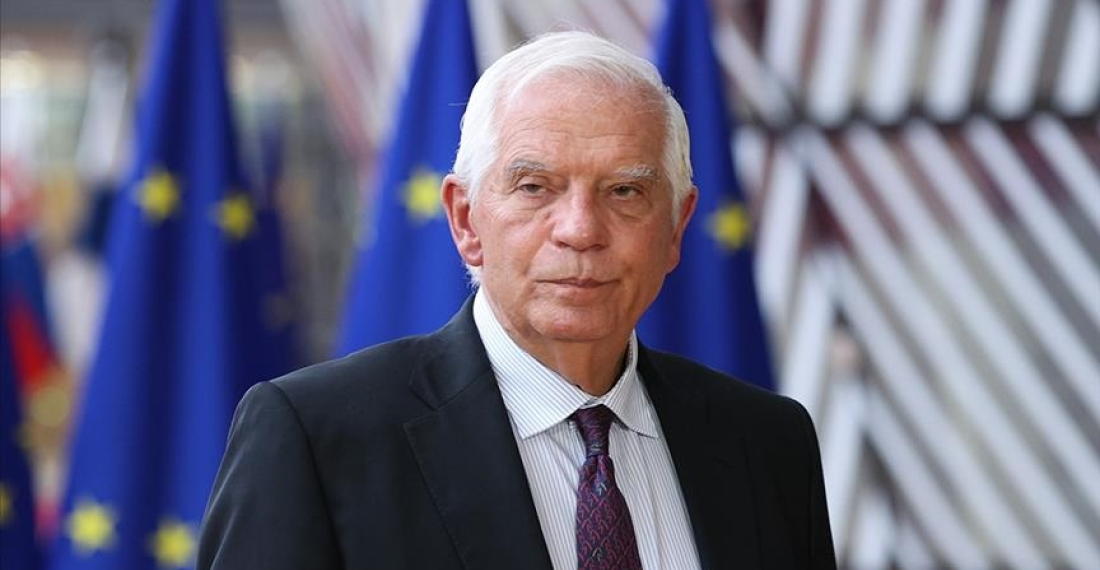The European Union's High Representative for Foreign Affairs and Security Policy Josep Borrell on Thursday (23 March) urged both Serbia and Kosovo to implement all parts of an EU-brokered normalisation deal that was struck on Saturday (18 March).
On his way to an EU leaders' summit, Borrell told reporters that “the agreement was agreed, it has to be implemented, and there is no room for picking and choosing".
"Any attempt to question this agreement is futile," Borrell added, stressing that the deal "is a whole, has to be implemented by all parts."
"I would advise them not to point at anyone but to do their work," he said.
Recognition of Kosovar documents by Belgrade, "appropriate level of self-management" for Kosovo Serbs, neither to impede the other's path to EU membership
The agreement reached on 18 March, which can be accessed here, concerns how a previous agreement reached on 27 February will be implemented.
In the 27 February agreement, which can be accessed here, it was agreed that both parties "shall mutually recognise their respective documents and national symbols, including passports, diplomas, licence plates, and customs stamps", and that "Serbia will not object to Kosovo’s membership in any international organisation."
The deal also stipulates that Pristina should "ensure an appropriate level of self-management for the Serbian community in Kosovo and ability for service provision in specific areas".
Regarding EU accession, the 27 February agreement also states that "neither Party will block, nor encourage others to block, the other Party’s progress in their respective EU path based on their own merits."
While Serbia was granted EU candidate status in 2012, Kosovo is a "potential candidate" having formally submitted an application on 15 December 2022.
During a visit to Vienna on Wednesday (22 March), the Serbian Foreign Minister Ivica Dačić said that the EU-brokered deal "is not an agreement on the recognition of Kosovo" and that Belgrade would implement it based on their "red lines".
Dačić added that "this means that we will not recognise [Kosovo] and we will not approve Kosovo's membership to the United Nations", thus prompting Borrell's intervention the following day.
EU-led Belgrade-Pristina dialogue
The EU-led Belgrade-Pristina Dialogue was launched in 2011 and aims to find a mutually agreeable solution for the disputes between Serbia and Kosovo in the framework of a legally binding agreement.
Kosovo declared its independence from Serbia in 2008, with most UN member-states, including the US, UK, France, Germany, and Türkiye, recognising it as a separate autonomous country. Five out of 27 EU states still do not recognise Kosovo, however, including Spain, Greece, Cyprus, Slovakia and Romania.







